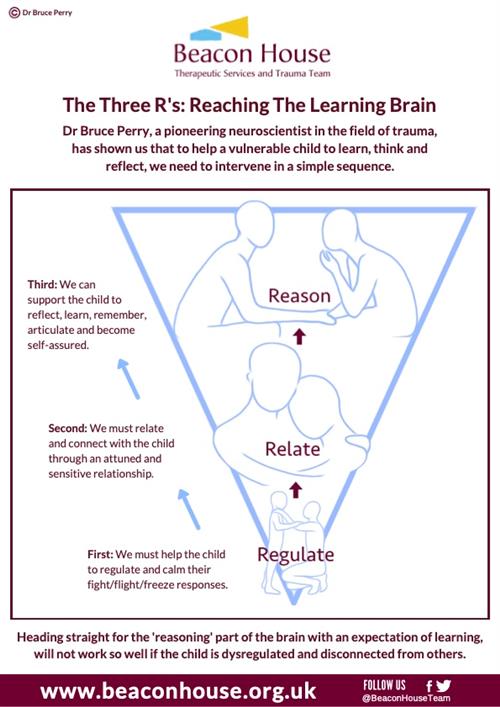Trauma-Informed Practices
-

Overview of Trauma-Informed Practices
Through our vision of Every student in DPS learns in a Safe & Welcoming, supportive, and inclusive environment where their social-emotional well-being is prioritized alongside academic success. We are dedicated to our mission of a Trauma-Informed Approach that recognizes the impact of trauma on students’ learning and well-being. By equipping educators with trauma-informed strategies, we create schools that foster healing, resilience, and meaningful relationships, ensuring every student feels safe, supported, and ready to learn.
As a district, We are committed to Every Learner Thrives, acknowledging that trauma can create systemic and personal barriers that affect emotional and physical health while impeding access to education. By implementing trauma-informed practices, we can better understand students’ experiences, make meaningful changes, and build a school community where students feel seen, heard, and valued.
Trauma-informed approaches within any system are guided by:
- Realize the widespread impact of trauma and the various pathways to support.
- Recognize the signs and symptoms of trauma in individuals across the system.
- Respond by incorporating knowledge about trauma into all aspects of the system's policies, procedures, and practices.
- Resist Re-traumatization by minimizing unnecessary triggers (e.g., reminders of trauma or loss) and implementing trauma-informed strategies to support individuals effectively.
The Role of the DPS Central Office Trauma-Informed Practices Team
The DPS Central Office Trauma-Informed (TI) practices team is dedicated to supporting the growth, implementation, and consistency of TI across school teams. Aligned with DPS’s vision that "Every Learner Thrives," our work focuses on Safe & Welcoming Environments, ensuring all students have the opportunity to develop the skills necessary to succeed in a diverse society.
Our Universal school-wide support model provides coaching and consultation on:
- Professional learning opportunities for school teams on strategies and implementation of Trauma-Informed practices.
- School-wide systems development and implementation of TI.
- Integration of Positive Behavioral Supports to create proactive, inclusive environments.
What is a Trauma-Informed School?
A trauma-informed K-12 school system is one where educators, administrators, staff, students, families, and community members understand and address the impact of traumatic stress on learning, behavior, and relationships. By recognizing how trauma affects both students and school personnel, schools can move away from punitive responses and instead implement supportive strategies that foster emotional well-being, academic success, and positive school culture. Prioritizing trauma-informed approaches ensures that schools provide the necessary skills, resources, and environments to help students and staff manage stress, build resilience, and thrive.(National Child Traumatic Stress Network. (n.d.). Trauma-informed schools for children in K-12: A systems framework)
Activating the Learning Brain Using the Three R’s
Developed by Dr. Bruce Perry, the Regulate. Relate. Reason framework provides a process for supporting adults and students through moments of stress or dysregulation. When an individual is dysregulated, their brain is not in a place to process logic or problem-solving. Instead of jumping straight to reasoning, we must first help them regulate their emotions, then build connection through relationships, and finally, engage in reasoning.
This sequence is essential because emotions drive behavior. By prioritizing regulation and connection first, we create the conditions for children to feel safe, heard, and ready to learn. Understanding and applying the Three R’s can transform how we support students, fostering environments where they can thrive socially, emotionally, and academically.

Creating a Trauma-Informed Learning Environment (Social/Emotional Skills and Wellness)
A trauma-informed learning environment prioritizes safety, support, and the promotion of wellness for all students. Schools achieve this by fostering healthy interactions among students and staff, teaching social and emotional skills, and developing self-regulation strategies.
In this approach, the school ensures students feel safe and supported across physical, social, emotional, and academic dimensions. Staff model healthy social and emotional behaviors while integrating trauma-informed practices into the broader school framework.
Connect with the District TI Team!
Our team is here to support your school’s implementation of Trauma-Informed Practices. Whether you need guidance, professional learning, or resources, we’re ready to collaborate. Reach out today to build stronger, more connected school communities!
CONTACT
-
Culturally Sustaining Teaching and Learning
1860 Lincoln Street, 8th Floor
780 Grant Street and Acoma Street locationsMarccus Spearman
Manager, Trauma-Informed and Restorative Practices
Marccus_Spearman@dpsk12.org
Resources to Support
-
Access to Trauma-Informed Practices Training
Trauma-Informed Training Offerings
We offer several training options for DPS staff training in Trauma-Informed Practices, including:
- In-Person Training Series for School-Based and Central-Office Staff:The Trauma-Informed Practices team offers a free training series consisting of three modules, which are 90 minutes each. The modules cover Trauma-Informed Foundations I-IV, The Events, Effects, & Expereinces of Trauma, Regulate, Relate, Reason, Trauma-Informed Communication, Trauma-Informed Vicarious Trauma & Staff Self-Care training is available for all staff that includes follow-up coaching and consultation. To discuss training options and schedule a training, contact Marccus Spearman, Manager of Trauma-Informed Restorative Practices.
-
Wellness & Self-care Support
Trauma and Secondary Stress, What You Need to Know
- Secondary Traumatic Stress
- Self-care for Educators
- Six Ways for Educators to Avoid Compassion Fatigue
- ProQOL
- Work Health Screening
Denver Public School Supports
- DPS's Employee Assistance Program
- Colorado Department of Human Services: Find Behavioral Health Help
- The Common's Wellness Resources
-
What is Trauma?
Tools to Identify Levels of Trauma
Information leaders, teachers and essential staff can use to deepen their knowledge of stress and trauma.
- View For Educators
Resources for community member to engage with victims of trauma and supports and services in the community.
Primary Trauma
- View ACEs survey presented by NPR
- View Learn more about ACEs from the CDC's ACE Study website
- View Mental Health Colorado: Mental Health Screenings
Unless otherwise noted, community resources compiled here have not been endorsed as trauma-informed by DPS.
-
Our Trauma-Informed Practices Foundational Texts:
- View The Body Keeps the Score: Brain, Mind and Body in the Healing of Trauma by Bessel van de Kolk
- View The Boy Who was Raised as a Dog by Bruce Perry
ACES/ Effects of Childhood Trauma:
- View Relationship of childhood abuse and household dysfunction to many of the leading causes of death in adults. by Nadine Burke-Harris
- View The Deepest Well: Healing the Long-term Effects of Childhood Trauma
- View It Didn’t Start with You by Mark Wolynn
- View Trauma through a Child’s Eyes by Peter Levine and Maggie Klein
Building Resources: Educator Self-Care
- View Onward Cultivating Emotional Resilience in Educators by Elena Aguilar (Onward workbook available)
- View Trauma Stewardship by Laura Vandernoot Lipsky and Connie Burke
- View Nonprofit Transformed by Cathy Phelps
Creating a Trauma Informed School/Classroom:
- View Fostering Resilient Learners: Strategies for a Trauma-Sensitive Classroom by Kristen Souers and Pete Hall
- View Relationship, Responsibility, and Regulation: Trauma-Invested Strategies for Fostering Resilient Learners by Kristen Souers and Pete Hall
- View The Trauma-Sensitive Classroom: Building Resilience with Compassionate Teaching by Patricia Jennings
- View The Trauma-Informed School: A Step-By-Step Implementation Guide for Administrators and School Personnel by Jim Sporleder and Heather Forbes












